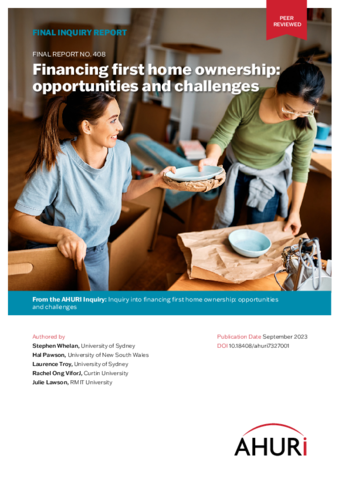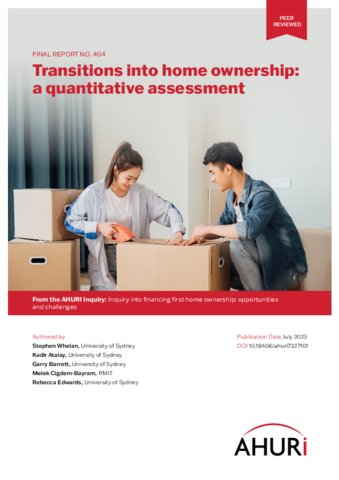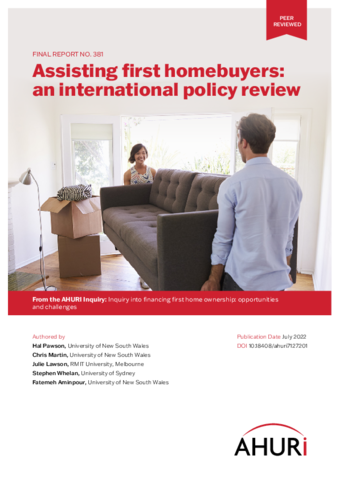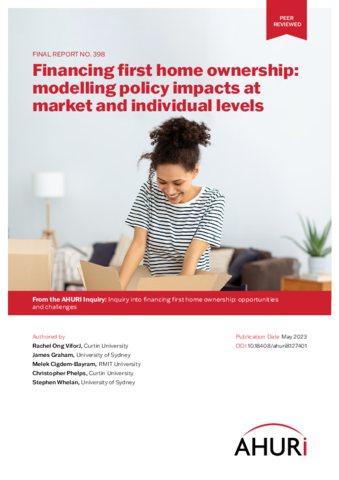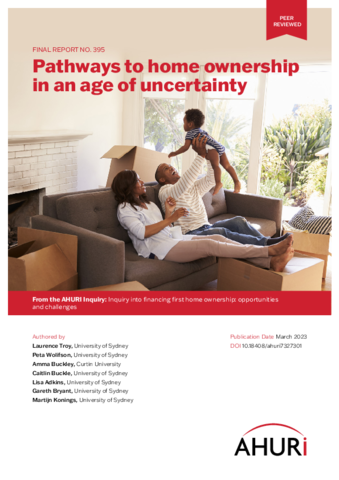From the AHURI Inquiry: Financing first home ownership: opportunities and challenges
This research investigates how young households (aged 25–34) in Sydney and Perth are adapting their spending and saving behaviours and living arrangements in order to be able to buy a home.
Increased house prices and cost of living have worsened the challenge of home ownership, with households—particularly low-income ones—unable to keep pace with market increases through their saving and budgeting strategies, which included minimising discretionary spending and actively managing finances such as by paying ahead on utility bills, eating basic foods and avoiding spending altogether.
The research indicates a diminished ability to save for a deposit through employment alone, with around 40 per cent of research survey participants expecting family assistance, whether direct finance or in-kind, to help them purchase. The ability to access such family support was found to be the single biggest factor in supporting being able to buy a home. In Sydney, familial support was an essential component of being able to buy a home in all cases, while in Perth it was still possible for some to buy without assistance, however many still benefited from direct and indirect help.
Government assistance policies need to a focus on long term risks and uncertainties generated through rising house prices, rising interest rates and an uncertain labour market. Housing policy will also need to recognise the often precarious life courses people experience, including recognising other tenures (such as renting) as legitimate long term housing outcomes. Housing policy needs to account for both existing and emergent generations of households who will never attain home ownership and address the structural wealth inequalities that being locked out of ownership generates.


